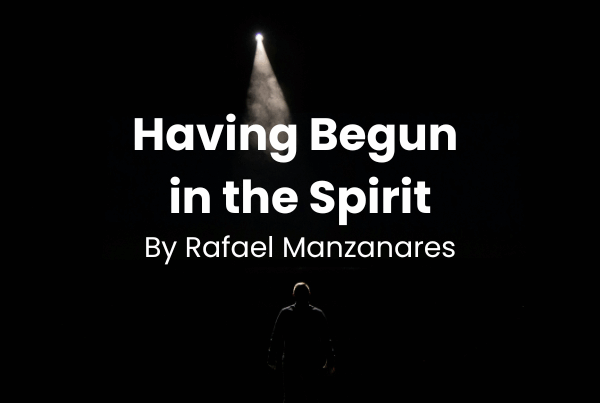
Lately I’ve been finding that lack is good. I live in a foreign country, in the capital city of a people with a different culture and beautifully complex language. I often don’t understand. I’m always guessing, based on people’s hand gestures, my basic vocabulary and the general context. Sometimes I get what they mean. Other times, I drastically misunderstand. That can be hilarious or humiliating, depending on the day.
Living in a foreign context brings out a lot of insecurities. I never feel totally equipped for anything. Things that in my home context would require no thought or attention can be painstaking tasks here. Paying bills is still a complex mystery to me. Singing songs at church requires concentrated effort, plus oftentimes a lot of homework on the side. I don’t like having to try so hard to do simple things, but it’s reality.
It’s a struggle to exist in a context where easy things are now difficult.
It’s frustrating to be slow at things that are mindless for me elsewhere. Don’t we all love to understand and be understood? It’s like a hug for the soul when people understand us. It’s like a cold, dark alley when they don’t. But maybe my lack of understanding is actually for a purpose. This discomfort and difficulty is exactly where God’s grace must be strong for me.
The apostle Paul wrote to the Corinthians that he was in weakness, fear and much trembling when he spoke with them. Paul, one of the smartest guys alive, admitted that his words weren’t persuasive on a human level, and that he looked like a mess. That had to be rough. Everybody used to admire and respect him as an esteemed and very holy Pharisee. He met Jesus, got saved and went on missionary journeys which brought him to pagan cities where they really weren’t impressed by him. And he says that’s exactly the point.
Paul was trembling, weak and afraid, and simultaneously, his words and example demonstrated the Holy Spirit and power. Weakness demonstrated power! Humiliating circumstances made way for the Holy Spirit to work. Paul learned to rely on the Spirit while still outwardly trembling. Paul didn’t try to impress them. Paul couldn’t communicate very well in that context (can I get an amen?), but he focused his efforts on loving them with the message of grace. He determined to know nothing among them but Jesus Christ and Him crucified, so that their faith would be in the power of God and not the wisdom of men. Paul submitted his weakness to God and proved the Gospel of grace to be true.
People like to be impressed. People like to be impressive. But God didn’t call us to be impressive, successful or to look like we aren’t failures. He called us to walk in the reality of grace, wherever we find ourselves.
People like to be impressed. People like to be impressive. But God didn’t call us to be impressive, successful or to look like we aren’t failures. He called us to walk in the reality of grace, wherever we find ourselves.
Grace cannot exist where there is no lack.
If we don’t have need, how can we experience grace? What need do we have for forgiveness if we have no sin? What need do we have for strength if we have no weakness? What need do we have for wisdom if we find ourselves not understanding? Jesus Christ became for us wisdom from God. It just doesn’t look like worldly wisdom.
It’s tempting to be conformed to the world, to try to look like everyone else who understands. But that isn’t the point. We are in this world, but we aren’t expected to become more like it. We’re being transformed, and it’s by the grace of God. He’s making us something different altogether.
A life lived in grace probably won’t look impressive. It definitely won’t feel impressive on a daily basis. It will feel like being weak, despised, base and foolish in the eyes of the world. But those things are exactly what God has chosen. He didn’t call many wise, mighty or noble. God doesn’t look for the impressive parts of our resume. Sure, there will be times that we get to walk in our strengths, and it’s glorious. But the point of grace — of God doing it on our behalf — is that He is proven glorious. We’re chosen to be vessels of His grace.
Paul wrote to those same Corinthians, “By the grace of God I am what I am” (1 Corinthians 15:10). The complex being of Paul could fit within God’s grace. Human strengths counted as nothing; grace counted for everything. By the grace of God Paul could look weak, foolish, trembling and afraid. By God’s grace he knew his true lack and sought no longer to be humanly impressive. And God’s strength was mighty in him.
Grace is for every day, every need, every lack.
In every way, grace does what we cannot do. Jean Sophia Pigott wrote, “My need and Thy great fullness meet, and I have all in Thee.” An ocean of my endless need, and endless oceans of God’s fullness. Paul knew his own lack and let grace be strong on his behalf.
Paul walked in the power of God’s grace. “And His grace toward me was not in vain; but I labored more abundantly than they all, yet not I, but the grace of God which was with me.” Grace didn’t just make him feel better. Grace motivated him to keep doing things that would require additional grace. He confessed his lack and received the power of God. He was strengthened in grace to do things that didn’t naturally come easy.
In our longing to be impressive, understood and fulfilled, we tend to forget God’s grace. We expend a lot of energy trying to deal with, fix or hide things. Grace makes us sufficient to embrace our present situation and work wholeheartedly, trusting God with the results.
Friends, rejoice that our lacks are on purpose. They press us into the grace of God, which we’ll find to be necessary and available for even the smallest things. Be encouraged that God can use what we despise in ourselves (looking foolish, weak, afraid or insufficient) to be a platform for His grace. People don’t need to be impressed by us. Let’s gladly confess our lack. Let’s embrace the uncomfortable things that make us need grace. Let’s stand firm and apply ourselves where we are by the grace of Jesus Christ, so that God’s power and wisdom can be made visible through the lens of our lives. That’s the Gospel. People see Jesus when His great fullness meets our need. Let’s be all to the glory of His grace.






